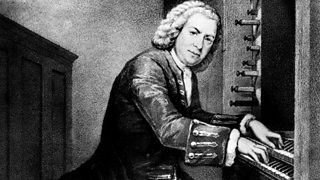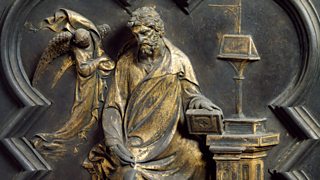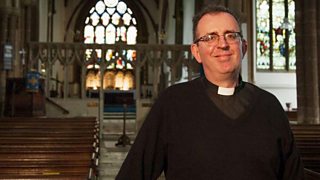What's so great about Bach?
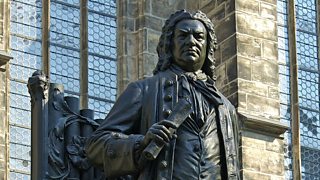
Isn't it obvious? Surely Bach's music has that solid sense of incontrovertible "rightness", with every note in its right and proper place, as if it had always been there and always will be.
It seems not the work of a mere man, but something immutable and timeless, reached down from the heavens, as if Bach were some kind of natural lawgiver, a musical Newton who has found the key to the secret of all music and opened it up before us.
This is certainly what many later composers cherished him for, this ability to express the very essence of the ancient science of music itself, its absolute truth. And, as Clemency Burton-Hill reveals in Planet Bach, it seems that every minute of every day, a musician is playing Bach’s music somewhere on our planet. Here, Lindsay Kemp reflects that perhaps he is the nearest thing we have to a god of music.
Yet Bach was a man, and a man of his time too: recognising this does not reduce his genius but magnifies it and makes it even more a source for wonder. He was not a child prodigy like Mozart; he himself said that he made the best of his talents through hard work, and he was certainly not too godlike to learn by studying worthy predecessors such as Frescobaldi, Buxtehude and Pachelbel, or fashionable contemporaries such as Vivaldi, Corelli and Couperin.
Intense intellectual effort and obsessive pursuit of perfection were what raised him out of the ordinary as a young man, first as a brilliant virtuoso organist and then as a composer for whom every detail of musical construction was cause for almost obsessive attention, whether in a little keyboard piece, a cheerful concerto or a grand and solemn church cantata.
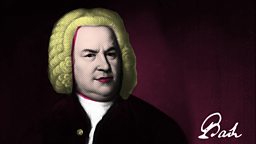
The bedrock of his art was counterpoint, the ingenious combining and reworking of separate lines of music. These procedures are tirelessly at work all the time, even when you are not aware of them, lending his music strength and depth; and they were also what sustained him in later life, when in works of dizzying intellectual accomplishment such as the Goldberg Variations, the Musical Offering and The Art of Fugue, he seemed concerned to explore every avenue of the composer's craft, as if indeed with the intention of laying down the law for all time.
Bach may have been that most potent of combinations – god and man.
While there is logical satisfaction to be gained from hearing the notes of the most powerful musical mind there has ever been slot inevitably into place, Bach's music speaks to us across the years with compelling spiritual and emotional strength.
It may be hard – as it is with any composer – to put one's finger on how he does it, but few could deny (just to take three examples) the joyousness of the Brandenburg Concertos, the nobility of the Cello Suites or the glowing splendour of the B minor Mass.
And if Bach's deep Lutheran faith is evident in the mixture of certainty and humble beauty which pervades his vast corpus of church music, it is pure human compassion which, in the St Matthew Passion, makes possible the heartbreaking drama of Peter's denial of Christ, or the tender song of farewell that is the final chorus.
It seems that Bach may have been that most potent of combinations – god and man.
Bach: The Haussmann Portrait
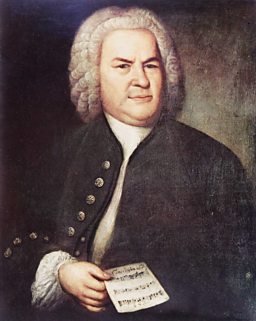
A Bach Timeline
1685: Bach born in Eisenach, 21 March
1692: Enrols at Lateinschule, Eisenach
1695: Bach's father dies; Bach goes to school at Ohrdruf
1700: Bach enrols at the Michaelisschule, Lüneburg
1703: Bach becomes organist at Arnstadt
1705: Bach visits Lübeck to hear Buxtehude
1707: Now at Mühlhausen, Bach marries his niece, Maria
1708: Bach appointed organist at Weimar
1710: Bach's son Wilhelm Friedemann born
1713: Bach begins composing the Orgelbüchlein
1717: Bach appointed Kapellmeister at Cöthen
1720: Death of Bach's wife Maria
1721: Bach marries Anna Magdalena
1723: Bach is now Kantor at the Leipzig Thomaskirche.
1727: St Matthew Passion performed in Leipzig
1732: St John Passion performed
1734: Christmas Oratorio Parts 1-3 performed
1739: Publication of the Clavierübung Part III
1742: Goldberg Variations published
1747: The Musical Offering is published
1749: Completion of the B Minor Mass
1750: Working on The Art of Fugue, Bach dies on 28 July
What does "BWV" mean?


In Planet Bach, Clemency Burton-Hill charts the rituals of playing Bach around the globe, across a day.
J S Bach on ���˿��� Radio
-
![]()
Composer of the Week: Johann Sebastian Bach
Donald Macleod explores the life and music of J S Bach.
-
![]()
Exploring how Bach's St Matthew Passion can touch and change people's lives.
-
![]()
Howard Goodall and Suzy Klein discuss the miraculous opening of Bach's St Matthew Passion.
-
![]()
The Rev. Richard Coles returns to his childhood musical hero, with some unexpected twists.
